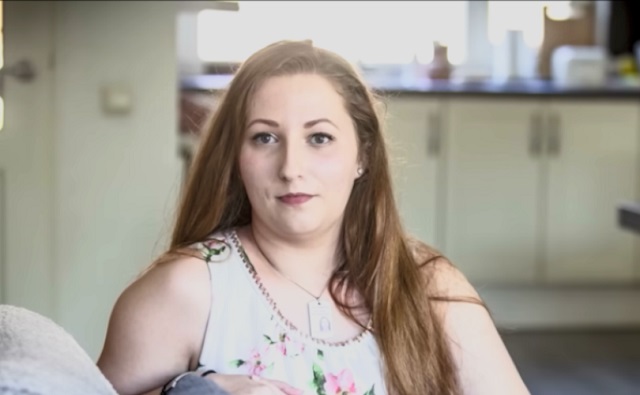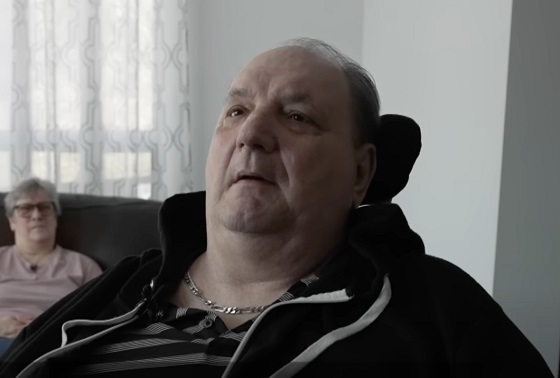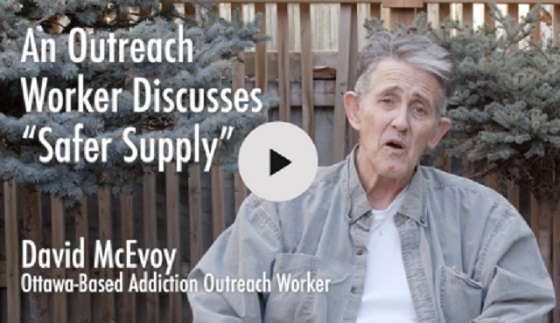MAiD
Canadian psychiatrist sounds alarm over Trudeau gov’t plan to expand euthanasia to the mentally ill

From LifeSiteNews
” someone not dying because of their condition, such as a mental disorder alone, seeking death is, by definition, suicidal. “
Dr. Harvey Chochinov, the well known professor of psychiatrisy from the University of Manitoba and the developer of dignity therapy, wrote an article that was published in the National Post on December 30, 2023 titled: Intensive compassionate caring — not MAiD — is the most effective way to address mental illness.
Chochinov writes:
It’s time to put the brakes on Medical Assistance in Dying (MAID) in Canada for those whose sole underlying medical condition is mental illness.
The federal government has tasked the Special Joint Committee on Medical Assistance in Dying to determine if Canada is ready to extend MAID eligibility, starting in March 2024, to patients with mental illness alone. Despite those convinced it is time, and safe, to launch what amounts to ‘psychiatric euthanasia,’ the special committee must pay attention to a murmur of protest that has grown to a roar: Ottawa, we’ve got a problem.
Current MAID eligibility requires a person have a grievous and irremediable medical condition. Unlike some cancers, and many neurodegenerative disorders, no mental disorder can be described as irremediable. To be sure, there are individuals whose mental affliction won’t improve, despite myriad treatments or psychosocial interventions. But there is currently no way to predict which patients won’t get better.
Studies of prognostic accuracy show psychiatrists are wrong half the time. I have cared for patients struggling with chronic suicidality; patients I worried might one day take their lives. I recall a woman with mind-numbing depression, who teetered precariously between life and death. One day, after years of countless drug trials, hospitalizations, electroconvulsive therapy, and various psychosocial interventions, she arrived for her appointment — three weeks into starting a new antidepressant — with a grin on her face.
‘The door is purple,’ she declared. I told her the door had always been purple, to which she replied, ‘I know, but now I care.’
Before that moment, no one — not me, not her friends or family and not anyone on The Special Joint Committee on Medical Assistance in Dying, nor any MAID assessor — could have predicted her recovery.
Chochinov then states that intensive, unwavering, compassionate care and caring — not MAID — offers the most effective way to address this kind of suffering.
The other reason not to launch psychiatric euthanasia is our inability to determine suicidality from those requesting MAID whose sole underlying medical condition is mental illness. According to the Canadian Association for Suicide Prevention, someone not dying because of their condition, such as a mental disorder alone, seeking death is, by definition, suicidal.
Similarly, the first item listed by the American Association of Suicidology differentiating physician hastened death and suicide is the patient must be dying. That certainly does not characterize patients who are mentally ill.
The euthanasia expansionists told the Special Joint Committee on Medical Assistance in Dying that “suicidality and having a reason to want to die are not at all the same.” Chochinov responds by stating:
We can say ‘six’ and ‘half-dozen’ are not the same as many times as we like. If we repeat it frequently, consistently and without equivocation, it might even sound convincing, but that doesn’t make it true.
Patients struggling with suicidality often have a reason to want to die, based on, for example, self-loathing, feeling like a burden or becoming worn down pursuing care and support that could sustain them. In those instances, the line between MAID and suicide simply vanishes.
Avoiding discrimination does not mean everyone is treated the same, but rather, that everyone gets equal access to what they need to thrive.
Time and again, committee members have asked witnesses when Canada’s psychiatric euthanasia program can be launched. I would suggest they behave like NASA. When a potentially catastrophic problem is identified before blast-off, space engineers don’t set an arbitrary new launch date, no more so than Health Canada announces a random release date of a new drug discovered to have unacceptable side-effects.
Ottawa, we have a problem.
The federal government would be well advised to scrap this mission. But if it insists on moving forward, launch should proceed only when the problems are solved, and not a moment sooner.
Reprinted with permission from Euthanasia Prevention Coalition.
International
28-year-old Dutch woman to be killed by assisted suicide after doctors deem her autism ‘untreatable’

28-year-old Dutch woman Zoraya ter Beek (YouTube Screenshot)
From LifeSiteNews
28-year-old Zoraya ter Beek plans to die by assisted suicide over her struggles with depression and mental illness, a trend which is increasing in The Netherlands.
A 28-year-old autistic woman is scheduled to die by assisted suicide in May in The Netherlands after struggling with depression and mental illness, with her psychiatrist telling her that her condition is untreatable and will never improve.
Zoraya ter Beek, who does not suffer from any physical illness, has decided to end her life by assisted suicide after psychiatrists said they had exhausted any means of helping her deal with her mental illnesses, which includes borderline personality disorder, according to The Free Press.
Her struggles with mental illness have prevented her from being able to finish school or start a career.
READ: Canadian judge blocks imminent euthanasia death of 27-year-old autistic woman
In testimony to the nihilistic attitude adopted in the choice to end her own life on account of suffering, Ter Beek has decided that after she has been killed, her body will be cremated without a funeral and her ashes scattered in the woods.
Ter Beek’s choice to take her own life comes despite her admitted fear of death arising from the uncertainty of what happens after death.
“I’m a little afraid of dying, because it’s the ultimate unknown,” she said. “We don’t really know what’s next – or is there nothing? That’s the scary part.”
The diagnosis of autism and mental illness as “untreatable” and “unbearable” has become an increasing trend in The Netherlands, with a study published in June 2023 revealing 40 cases over a 10-year period from 2012 to 2021. In a third of those cases, those with autism or intellectual disabilities were told there was no hope of improving their lives, and so their condition was deemed “untreatable.”
READ: Autistic people in the Netherlands are being euthanized: report
Irene Tuffrey-Wijne, a palliative care physician at Britain’s Kingston University, who led the study which examined 900 cases, said, “There’s no doubt in my mind these people were suffering. But is society really OK with sending this message, that there’s no other way to help them and it’s just better to be dead?”
Tim Stainton, director of the Canadian Institute for Inclusion and Citizenship at the University of British Columbia, added, “Helping people with autism and intellectual disabilities to die is essentially eugenics.”
The scheduled killing of the 28-year-old autistic woman comes as The Netherlands continues to expand the scope of what legally qualifies for euthanasia, with a new law effective February 1 allowing the killing of terminally ill children aged 1 through 12 who are deemed to be “suffering hopelessly and unbearably.”
The law allows parents to decide to kill their child even if the child is unwilling or unable to consent.
Health
Quadriplegic man dies via euthanasia after developing bed sores waiting at Quebec hospital

66-year-old Quebec man Normand Meunier who died via euthanasia after a 4-day hospital stay left him with severe bed sores
From LifeSiteNews
‘I don’t want to be a burden,’ the 66-year-old man said prior to his death after he developed bed sores due to a lack of specialized care at a hospital in Saint-Jérôme, Quebec.
A quadriplegic man in Quebec was killed via euthanasia after he developed severe bed sores while waiting in a hospital for an extended period of time.
On March 29, Normand Meunier, a 66-year-old quadriplegic man in Quebec, was euthanized in his home after developing bed sores due to a lack of specialized care at the hospital in Saint-Jérôme, Quebec, according to a report by Radio-Canada.
“I don’t want to be a burden. At any rate, the medical opinions say I won’t be a burden for long; as the old folks say, it’s better to kick the can,” Meunier told Radio-Canada in an interview the day before he was killed.
Meunier, whose arms and legs have been paralyzed since 2022 due to a spinal cord injury, went to the hospital’s intensive care for a respiratory virus. According to his partner Sylvie Brosseau, the hospital placed Meunier on a stretcher for 95 hours.
Bosseau revealed that she asked medical staff to provide a specialized bed for Meunier but was told that the hospital would have to order one. According to the hospital, they are investigating the incident, adding that they do have beds available.
After spending four days on a hospital cot, Meunier developed bed sores and a major pressure ulcer on his buttocks, which were so severe that the muscle and bone were exposed and visible.
While Meunier had previously experienced bedsores, he determined to end his life via Medical Assistance in Dying (MAiD), the euphemistic name for Canada’s euthanasia regime, rather than continue to receive treatment.
Unfortunately, Meunier is not the first Canadians to choose MAiD after being given insufficient medical care.
As a result of a healthcare worker shortage, wait times to receive care in Canada have increased to an average of 27.7 weeks, leading some Canadians to despair and opt for euthanasia instead of waiting for assistance.
This was the case of 52-year-old Dan Quayle, a grandfather from British Columbia. On November 24, he chose to be killed via lethal injection after being unable to receive cancer treatment due to the increased wait times.
Throughout the agonizing wait, his family “prayed he would change his mind or get an 11th-hour call that chemo had been scheduled,” but were instead told consistently by the hospital that they were “backlogged.”
Similarly, in 2022, a Winnipeg woman wrote in her posthumously published obituary that she chose to die by assisted suicide after being refused the treatments she needed: “I could have had more time if I had more help.”
However, instead of supporting the healthcare system to prevent Canadians from taking their own lives, the Trudeau government is working to expand access to MAiD by loosening its requirements.
On March 9, 2024, MAiD was set to expand to include those suffering solely from mental illness. This is a result of the 2021 passage of Bill C-7, which also allowed the chronically ill – not just the terminally ill – to qualify for so-called doctor-assisted death.
After massive pushback from doctors, pro-life groups and politicians, the program’s expansion was temporarily paused until 2027.
According to Health Canada, in 2022, 13,241 Canadians died by MAiD lethal injection, which is 4.1 percent of all deaths in the country for that year, and a 31.2 percent increase from 2021.
The number of Canadians killed by lethal injection since 2016 now stands at 44,958.
-

 Alberta2 days ago
Alberta2 days agoAlberta’s vision for passenger rail
-

 Addictions2 days ago
Addictions2 days agoMust Watch: Addiction worker estimates 90% of “safer supply” drugs resold on black market
-

 conflict2 days ago
conflict2 days agoColumbia on Lockdown After pro-Palestinian Protesters Take Over Building, Hold Janitors Hostage
-

 Canadian Energy Centre2 days ago
Canadian Energy Centre2 days agoNorth America LNG project cost competitiveness
-

 Business1 day ago
Business1 day agoWEF panelist suggests COVID response accustomed people to the idea of CBDCs
-

 COVID-192 days ago
COVID-192 days agoStates move to oppose WHO’s ‘pandemic treaty,’ assert states’ rights
-

 Business2 days ago
Business2 days agoParliamentary Budget Officer forecasts bigger deficits for years to come
-

 illegal immigration1 day ago
illegal immigration1 day agoFlight Docs Reveal Which Cities Are Receiving Migrants Under Biden’s Parole Program









